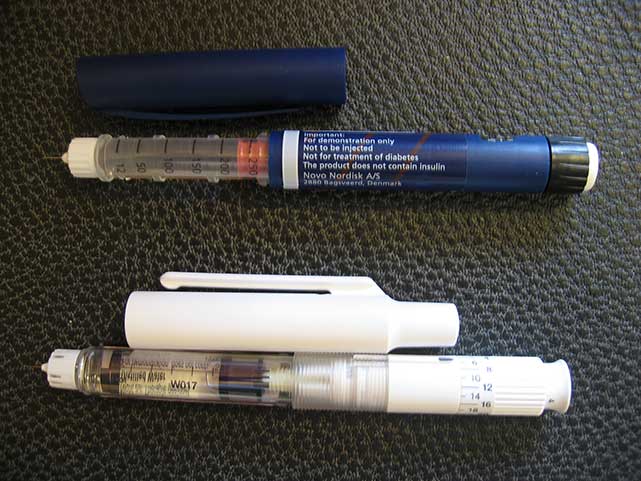Hero: Novo Nordisk
Novo Nordisk, the Danish pharmaceutical company largely dedicated to diabetes treatment, launched a six-month diabetes awareness campaign in July in conjunction with the Kenyan Ministry of Health and the Kenya Diabetes Management and Information Center. The campaign aims to increase rates of early diagnosis among the population through public screening and education campaigns housed in faith-based organizations and various public healthcare facilities. “We know that the rate of undiagnosed diabetes is negatively impacting the health and economic wellbeing of thousands of people in Kenya,” says Ben Konate, general manager, Novo Nordisk Middle Africa. “Breaking this pattern of lack of awareness is our promise to people living with diabetes.” The program is also being supported by the Danish Embassy, Philips Pharmaceutical and a number of smaller Kenyan NGOs.
 The campaign is the latest phase in Nordisk’s Base of the Pyramid (BoP) initiative, a project launched in 2010 to bring diabetes treatment to the working poor in low- and middle-income countries. The BoP program is now established in Kenya, Nigeria, Ghana and India. Since coming to Kenya in 2012, the program has ensured a steady source of insulin in 27 of Kenya’s 47 counties by harnessing a mixture of public-private partnerships and new BoP clinics. One of the most effective tools for expanding insulin access has been Nordisk’s differential pricing policy, which caps prices in 32 of the world’s 48 poorest countries. In Kenya, this differential pricing policy is buttressed by agreements made with every link in the distribution chain not to exceed the agreed upon price.
The campaign is the latest phase in Nordisk’s Base of the Pyramid (BoP) initiative, a project launched in 2010 to bring diabetes treatment to the working poor in low- and middle-income countries. The BoP program is now established in Kenya, Nigeria, Ghana and India. Since coming to Kenya in 2012, the program has ensured a steady source of insulin in 27 of Kenya’s 47 counties by harnessing a mixture of public-private partnerships and new BoP clinics. One of the most effective tools for expanding insulin access has been Nordisk’s differential pricing policy, which caps prices in 32 of the world’s 48 poorest countries. In Kenya, this differential pricing policy is buttressed by agreements made with every link in the distribution chain not to exceed the agreed upon price.
Nordisk, the largest company in the Nordic region by market cap, has long been seen as a leader on environmental, social and governance issues. It incorporated the triple bottom line concept of financial, social and environmental gains into the company’s legal structure over a decade ago, and was ranked as the most sustainable corporation in the world by this magazine in 2012.
“The main foundation for Novo Nordisk is the triple bottom line because that is what’s protecting our license to operate,” said Lars Rebien Sorensen, the firm’s president and CEO in an interview with Corporate Knights after receiving the award. “That begs and obliges everybody in the company not only to see that we become a good business – that’s the financial bottom line – but that we do so in a way that is socially and environmentally responsible.”
Zero: Silver Wheaton
Vancouver-based Silver Wheaton Corp. received a letter from the Canadian Revenue Agency (CRA) in July proposing to tax an additional $715 million of income generated by Wheaton’s foreign units in Barbados and the Cayman Islands between 2005 and 2010. While the letter is not a formal reassessment, it does outline the reasoning for any future adjustment. The company could be on the hook for over $215 million in back taxes and penalties for the five-year period. Profits generated between 2011 and the present could also be reassessed by CRA in the future, which would end up costing the company an additional $360 million, according to one market analysis.
 Wheaton, the world’s largest mining “streaming” company, offers financing to mining ventures looking to build new mines. In exchange, the mine operator agrees to sell Wheaton silver – and sometimes gold – extracted from that mine at a discounted price. Wheaton then sells these metals at market value, earning a healthy profit. Any revenue generated from mines outside of Canada is reported as foreign income earned by its subsidiaries in the Caribbean.
Wheaton, the world’s largest mining “streaming” company, offers financing to mining ventures looking to build new mines. In exchange, the mine operator agrees to sell Wheaton silver – and sometimes gold – extracted from that mine at a discounted price. Wheaton then sells these metals at market value, earning a healthy profit. Any revenue generated from mines outside of Canada is reported as foreign income earned by its subsidiaries in the Caribbean.
The CRA is arguing that Wheaton is pursuing a tax avoidance scheme, and that these earnings should be subject to Canadian transfer pricing rules. Wheaton, for its part, is insisting that it has paid all applicable taxes. “Generally a company is taxable in Canada on its income earned in Canada, while non-Canadian income earned by foreign subsidiaries is not subject to Canadian income tax,” CEO Randy Smallwood said in a statement. The company plans to defend its filing position in the months ahead.
This is the second mining company that the CRA has targeted for tax avoidance in the past decade, having been engaged in a protracted battle with uranium miner Cameco since 2008. In 1999, Cameco set up a subsidiary in Switzerland named Cameco Europe Ltd. It then signed a 17-year deal to sell all uranium produced in Canada to this new subsidiary at the same low price. Cameco Europe sells the uranium at market rates around the world, and pays a lower Swiss corporate tax rate on all its profits. The CRA believes Cameco owes more than $1 billion in back taxes and penalties for undeclared Canadian income, and will be taking the company to federal tax court in 2016.







